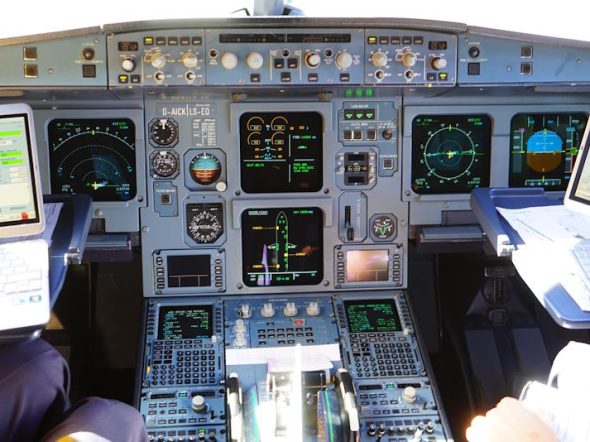The concept of taking to the skies has always fascinated many individuals. Flight and aircraft training can be an incredibly rewarding experience, providing unique opportunities to explore the world from a whole new perspective. From the exhilaration of soaring through the clouds to the satisfaction of mastering a complex skill set, flight training offers numerous advantages for those willing to embrace it. Let's take a closer look at some of the key benefits that flight training can provide.
Increased Confidence
Flight and aircraft training is an intensive learning process that demands dedication and hard work. However, the rewards are immense when it comes to self-confidence. As you delve into aviation principles, aircraft systems, navigation techniques, and more, your confidence will grow exponentially as you build your skill set and gain experience in flying an airplane or helicopter safely. The more proficient you become at handling different flight situations, the greater your sense of accomplishment will be when you complete each step. This newfound confidence will extend beyond flying and positively impact other areas of your life.
Sense of Achievement
As mentioned earlier, mastering the complexities of aviation requires time and effort. However, witnessing your efforts pay off is one of the most gratifying aspects of flight training. Each successful landing or correctly executed procedure will provide a sense of achievement that few other experiences can match. Over time, these small triumphs will accumulate into significant accomplishments, such as passing check rides or effortlessly performing advanced maneuvers. Even if you decide not to pursue a career in aviation after completing your flight training program, achieving these demanding goals will motivate you to conquer future challenges in life.
Opportunity to Explore New Places
One of the appealing aspects of aircraft piloting is the ability to access places that would otherwise be difficult or impossible to reach by other means. Whether remote wilderness locations accessible only by air or breathtaking coastal views from thousands of feet above sea level, taking advantage of this opportunity opens up a world of possibilities. You can embark on sightseeing trips to nearby areas or distant countries, engage in aerial photography sessions capturing stunning natural scenery, or embark on business trips across state borders without concerns about road conditions. With sufficient practice and proper licensing, there are no limits to where your travels may take you.
Enhanced Cognitive Abilities
Flying an airplane involves more than just physical skills like controlling speed and altitude. It also requires quick thinking, problem-solving, and decision-making during unexpected scenarios while in flight. This means engaging both brain hemispheres and performing complex tasks simultaneously, enhancing cognitive abilities. These benefits include improved memory recall capabilities due to increased use of the hippocampus region responsible for long-term memories. Studies have also shown that pilots benefit from improved multitasking abilities, making them safer aviators than those lacking mental acuity.
Career Opportunities
For individuals seeking professional piloting careers, gaining additional qualifications through flight and aircraft training programs can prove invaluable. By mastering basic concepts and procedures, aspiring pilots can enhance their credentials by enrolling in advanced courses designed to meet industry standards and prepare them to confidently handle challenging situations. These courses cover aerobatics, formation flying, and instrument ratings, enabling students to improve existing skill sets while acquiring new ones. Upon completion, these qualifications open doors to various job opportunities within commercial airlines and private jet companies, depending on individual expertise and ambition.
Improved Well-being
Studies have shown numerous health benefits associated with regular flying activities. In addition to improving physical fitness levels through increased muscle movement during control inputs, exposure to high altitudes stimulates the production of red blood cells responsible for effectively transporting oxygen throughout the body. Furthermore, the psychological effects should not be overlooked. Feeling weightlessness mid-air has been proven to significantly reduce stress levels and boost energy and mood by releasing endorphins triggered by adrenaline rushes experienced during takeoffs and landings. Overall, flight and aircraft training contribute to an improved quality of life and well-being.
Participating in flight and aircraft training provides individuals unique opportunities to explore worlds they have never seen before while unlocking their hidden potential. From increased self-confidence and achievement of personal goals to enhanced cognitive abilities and preparation for future career prospects, the sky is truly the limit when it comes to unleashing the full power of the human mind. So why wait? Begin your journey today to discover what lies beyond the horizon!
